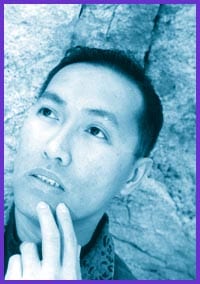Nitto Marquez hopes to outlive his mother.
That way he’ll never have to tell the 79-year-old about his HIV status.
It’s hard enough to be Asian and gay, says Marquez. Coming out as HIV-positive is almost too hard to bear.
“The Asian community is really about 10 years behind the rest of North America,” says Marquez, who had a difficult time coming out to his traditional Filipino family.
Five years have gone by since the Asian Community AIDS Services was first conceived, tailoring its culturally sensitive helping hand to the hundreds who come through its discreet doors.
And Marquez is now the ACAS president, inspired by the help he received after testing positive more than three years ago. “After bouncing back from being sick, I figured it was time to give something back,” says Marquez, who moved to Canada from the Philippines 22 years ago.
ACAS, a registered charity, is now looking to expand its services with a year-long fundraising campaign.
Says Marquez: “It’s still often considered embarrassing to have a gay man in the family. It’s a great big slap in the family’s face. It’s really taboo. There’s a strong desire to save face.”
His mother risked her health to produce her first-born son. After a string of daughters, he was her ninth child and was presented with the burden of continuing the family lineage.
“It… provided me with a lot of guilt and emotional baggage,” says Marquez, who recently came back from a two-month stay with his mother, still in the Philippines.
“One of the things that really baffles me is that my mom still thinks that if I move back to the Philippines I would no longer be gay. She tells me, ‘Come back and live with me and everything will be okay,'” says Marquez in dismay. “We go through the same agony every time I visit.
“What’s especially important about the service is that the staff and volunteers were brought up witnessing the cultural stigma attached to being HIV positive in the Asian community,” he says.
About 30 volunteers work at ACAS, doing anything from clerical work to the buddy program to social outings – which is especially important for those who’ve been cut from their families.
“There’s a hunger to do the kind of things that they did before,” says Marquez, from dim sum to film nights in Chinatown.
“It’s so important to reduce the isolation that many of these people feel.”
ACAS, tucked away on 33 Isabella St, offers services in Mandarin, Cantonese, Filipino and Vietnamese. Professional counselling, referrals and Asian language interpreters are available free of charge to anyone in the East and Southeast Asian community.
“Unfortunately we’re neglecting other parts of the Asian community,” says Marquez. “One of our main targets right now is to be more inclusive.”
To volunteer or to donate money, call (416) 963-4300.

 Why you can trust Xtra
Why you can trust Xtra


